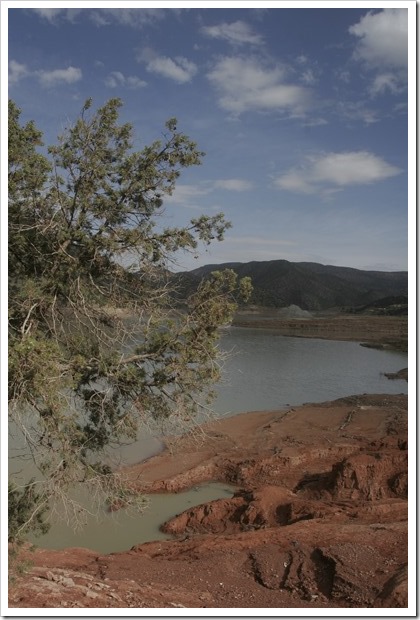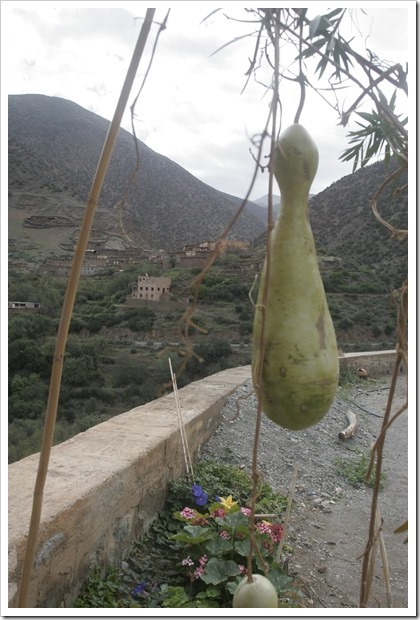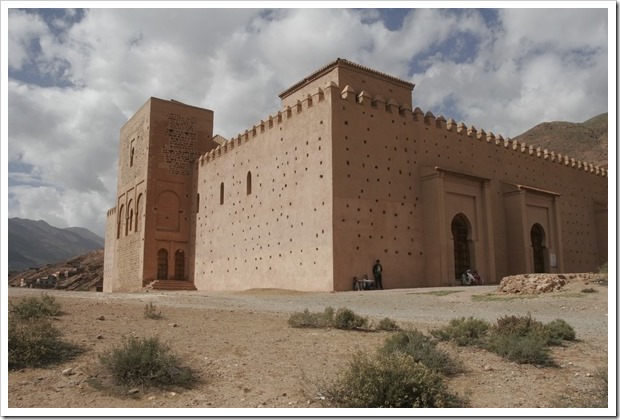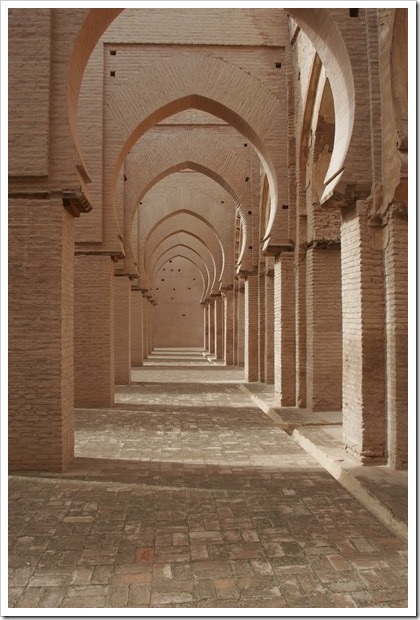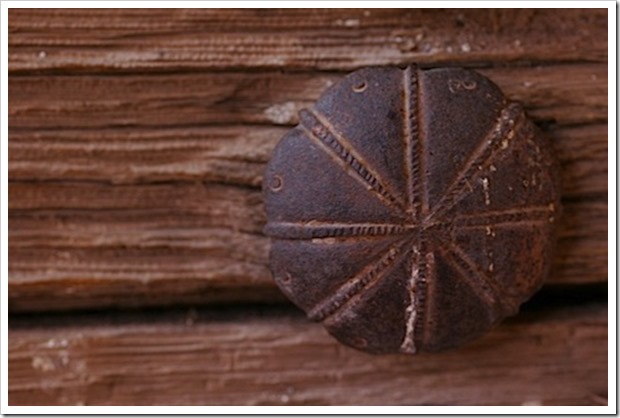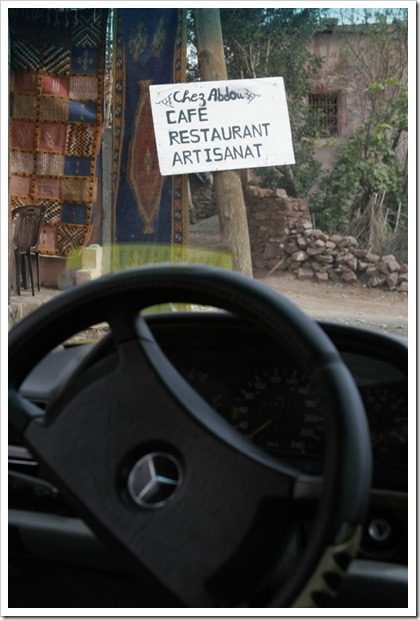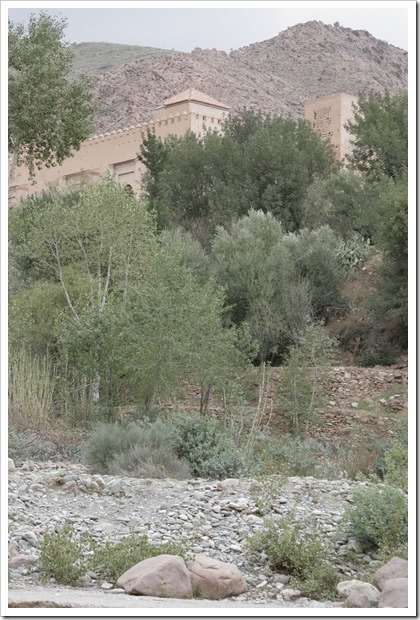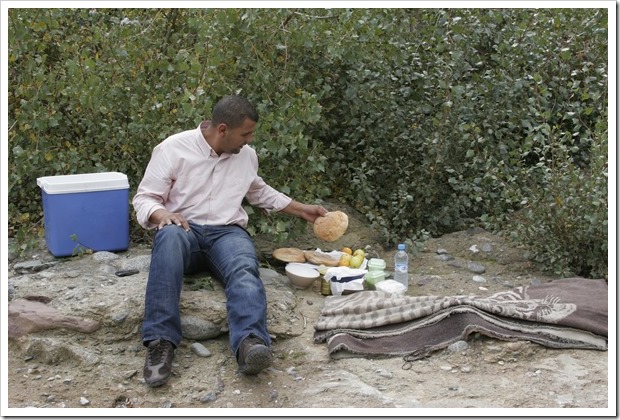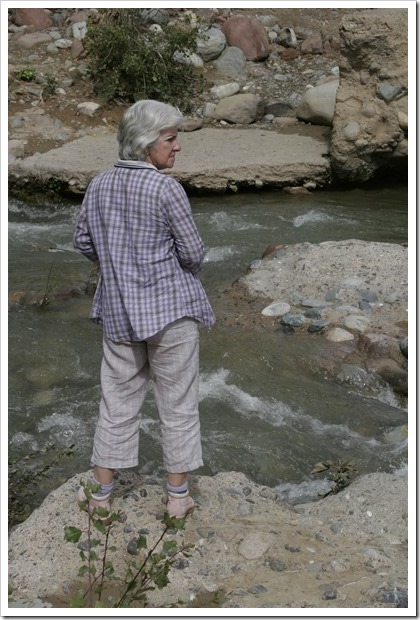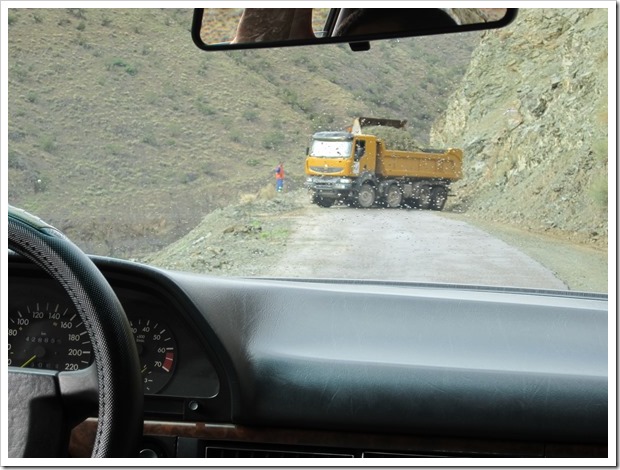Today we are out on the road again.
Our driver is Hussein, the owner of a newer model Mercedes 240 than the one which brought us from Marrakech to the Kasbah. He has no dashboard adornments. The only non standard equipment visible is evidence of some parcel tape used some time ago to hold the sun visors in either the up or down position. The tape has long since gone, but the dust covered sticky marks remain. He does have James Bond replica bullet holes in his windscreen.
We leave the Kasbah and head towards the Asni road that we returned on yesterday. This is the weekend, and children are out and about, some playing hopscotch on rough patches of ground.
As we climb the Moulay Ibrahim gorge we see egrets wading in the torrent below. Hussein tells us there are no fish in the river. In that case they must be hunting frogs. We catch our first clear sight of Mount Toubkal for some time, and it looks as though there must have been snow there since Thursday.
As we pass through Asni and turn south on the old Agadir road, Hussein has a sneeze, catches it in one hand then takes both off the wheel to rub them together. At that instant a squirrel falls from a tree. Can things get any more bizarre? We notice a house that has a storks nest balanced in a tree in the garden. I enquire whether this was good luck (I had already read that the stork was exceptionally lucky for Moroccans) but Hussein did not seem to know. We climb to the top of the Ourigane valley and stop for a photo. I rummage around for juniper berries, Hussein does not know what they are. Past the town of Ourigane, where Hussein is from (much tooting and waving going on) we see a dam and reservoir built around five years ago. The locals were forcibly moved out of their settlements to make way for the rising water. I remember the time when the village in mid Wales was flooded to provide water supplies for England, in the case of the village here the water is mainly to supply golf courses in and around Marrakech. I wonder how the displaced locals felt about that.
Things are warming up now, and I attempt to open the window. No luck. Hussein fiddles with some equipment in his centre console, but still no luck.
We are delayed for a few minutes by a digger removing red gravel and silt from the road, and emptying it into a lorry. Our driver tells us that the lorry will just take it away and tip it somewhere else. I say that back home this gravel could be put in bags and sold in garden centres for many Dirhams. He does not quite believe me, as he can just go down the road and get as much as he wants at any time.
We stop at a place overlooking a village which I think is called Amskine. Some of the windows are adorned with white surrounds, a sign of Berber hospitality. There is a small shop with a few gourds hanging outside. I was about to ask whether these would be for sale, or if they were a sign for something. I resist.
I have by this time used up my supply of Arabic. Hussein seems convinced that I have been to Egypt, as I talk like an Egyptian. I tell him no, I picked up a few words in Bahrain. I did not give him the line that I gave AK yesterday which was that I can only ask for five of anything as I don’t know the Arabic for any other number. I got to know this number in Bahrain, in a rather down market hotel that the boys frequented on a Thursday night. A bar at this hotel was on the fifth floor, and if any Saudis entered the lift with us they would ask for “hamsa”. This was the floor well known for the availability of Russian “business ladies” ! So don’t ask me to get half a dozen eggs.
Get to Tin Mel Mosque, a UNESCO site, and a young man unlocks the door and lets us in. This 12th century mosque served a community of around six thousand at its height. It was built before any mosque in Marrakech. In style it is very much like the Mesquite in Cordoba, but without the ornate decoration or floor. It feels very tranquil inside. There is a sense of serenity and history about these old places of worship that does stimulate quiet contemplation and stop and just wonder why. Our guide explains the parts of the mosque, the praying part had a roof, the ablution area was open to the elements. The roof has long gone, but at one end of the building now are stacked the original cedar wood doors, with door furniture, waiting to be refitted. Plenty of pictures taken with the absence of sun. The sun comes out so we take them all over again, but shame that we arrived so near to midday after we had told our host at the Kasbah we really wanted to get the early day light.
We leave the interior of the mosque, and I wander around the outside, and I meet a party of middle aged ladies who I give my best greetings to. They find this hilarious. Maybe they don’t understand my Egyptian accent. My fellow traveller was wandering around looking for rubbish on the ground that could be considered a souvenir. She struck lucky with a rusty thrown donkey shoe.
We climb into our car, and just get going when Hussein asks whether we need a comfort break. I decline for a couple of reasons, the first being the likelihood of finding clean facilities that would be recognisable to us, and second, the WC was attached to a cafe come shop in which “Artisanat” goods were for sale. My companion however took advantage of the facilities and was forced to place her feet on the starting blocks! There was a bit of an issue when she exited the closet and declined to purchase anything. It sounded as if the taxi driver got a piece of the shop owners mind for bringing people to his shop who don’t buy.
On we go, and pass a tractor. The first we have seen in Morocco. Looks like a 1960’s Massey Ferguson or something similar. About 50 yards further down the road we pull over and stop for our picnic by the river, with the mosque hovering in view above. Hussein places a rug on the shoreline and we sit down to eat tuna salad, bread, salted nuts and raisins and fresh fruit (by the way this is the fourth day running I have had tuna salad). We chat about this and that, fishing, farming and how the old caravan routes would have travelled the route from Agadir to Marrakech and what they would be trading here at Tin Mel. My companion and I vow to find out a bit more about the history of this place when we return home.
The sky overhead is getting darker by the minute now. I suggest to Hussein that it is going to rain soon. He looks about him like a wise old sage and says “no rain, maybe tomorrow”. Ten minutes later we are packing the picnic things back into the car when it starts raining. He may be local, but I think this proves beyond doubt that the British have a way with weather that others don’t.
We are on the return journey and things are very quiet. In order to break the silence I try to get into a philosophical discussion with Hussein about the importance of bread to the Moroccan. I started discourse as I noticed in all the small village shops, bread is the only thing that seems to be kept away from flies in a glass cupboard and packed into a bag when purchased. Meat, poultry and vegetables are left to the elements and whatever organism cares to alight on it. I enquired whether this was a trait inherited from the French during their occupation. He thought not, more a result of the influence of the Arabs. I then tried to question his view, as the structure, colour and crumb of the Moroccan bread is more like French than Arabic. Moroccan bread is baked on the floor of the oven, Arabic often on the side walls. These concepts were not understood. The conversation stopped here. Few minutes later I try again with talk of children. More success here. He has two sons, 12 and 8 and a 6 month old daughter. I tell him that I have two sons and a grandson and I will show him a picture when we stop. He thinks I say can we stop for a picture. He stops.
We climb a high pass and just as we summit a lone cyclist passes us by. We descend now towards Asni, a long windy steep descent, and about another dozen cyclists were coming up, and pedalling bravely to catch the leader. We pass the road clearing digger again, and whilst we are waiting for the road to clear Hussein does a bit of digging of his own !
We arrive back at the Kasbah shortly after three o’clock having declined Hussein’s kind offer of a detour to Imlil as by this time we were feeling a bit tired and queasy after such a long slow day in the taxi. I was watching the speedo a lot of the time, and I don’t think the got over 40 mph the whole time we were in the car, but will check on the GPS in the near future.
Back to the room to dump our bags we return to the terrace for tea. As I walk over I meet AK from yesterday. He is his jovial self and greets me with a habibi (sort of a male darling greeting used by Arabic men) and plenty of salams. We promise to meet up again, Inshallah. He could see I was working on my pictures from yesterday and asked me to send him copies. He said “they are part of my life too”. A very nice man to have met on our holiday.

